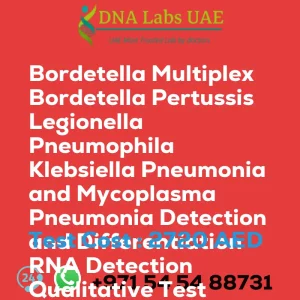Epstein Barr Virus (EBV) VCA IgG Antibody Test Price, Purpose, and Results in UAE
اختبار الأجسام المضادة لفيروس إبشتاين بار (مستضد الكابسيد الفيروسي VCA IgG)
السعر: 370 درهم إماراتي (بدون ضريبة) + 100 درهم لخدمة التوصيل المنزلي الفاخرة
الغرض: الكشف عن الأجسام المضادة من نوع IgG لفيروس إبشتاين بار لتشخيص العدوى السابقة أو الحالية، وخاصة في حالات الحمى الغدية (كثرة الوحيدات العدوائية) وأمراض المناعة الذاتية.
مدة النتيجة: 96 ساعة عمل من استلام العينة في المختبر.
خدمة التوصيل المنزلي متاحة في جميع أنحاء الإمارات (دبي، أبوظبي، الشارقة، العين، رأس الخيمة) مقابل 100 درهم فقط.
Quick Facts
| Attribute | Details |
|---|---|
| Test Name | Epstein Barr Virus Antibody to Viral Capsid Antigen (VCA) IgG |
| Sample Type | Blood (Serum) |
| Test Price (AED) | 370 AED |
| Turnaround Time | 3 Days |
| Home Collection Fee | 100 AED (Premium Concierge – UAE wide) |
What is the Epstein Barr Virus (EBV) VCA IgG Antibody Test?
The Epstein Barr Virus (EBV) VCA IgG antibody test detects the presence of Immunoglobulin G (IgG) antibodies against the Viral Capsid Antigen of EBV. EBV is a member of the herpesvirus family and is one of the most common human viruses worldwide. It is the primary cause of infectious mononucleosis (glandular fever). The VCA IgG antibody appears during the acute phase of infection and typically persists for life, indicating either a recent or past infection. This test is essential for determining immune status, confirming past exposure, and aiding in the differential diagnosis of persistent fatigue, fever, or lymphadenopathy.
Clinical Indications: Who Should Take This Test?
The EBV VCA IgG test is recommended for individuals experiencing:
- Prolonged fatigue, fever, and sore throat suggestive of infectious mononucleosis.
- Unexplained swollen lymph nodes (lymphadenopathy).
- Suspected EBV reactivation in immunocompromised patients (e.g., transplant recipients, HIV).
- Chronic fatigue syndrome workup.
- Autoimmune disorders (EBV has been linked to conditions like multiple sclerosis and lupus).
- Pregnancy screening when EBV infection is suspected.
- Pre‑employment or travel health checks requiring immunity verification.
The UAE Process: Simple, Convenient, and Fast
- 1. Book Your Test
Schedule online through our website or via WhatsApp. Choose your preferred date and time. - 2. Sample Collection
Visit any of our labs in Dubai (JLT, Downtown Dubai) or Abu Dhabi (Al Reem Island, Khalifa City) — or opt for our Premium Concierge Home Collection (100 AED) anywhere in the UAE, including Sharjah, Al Ain, and Ras Al Khaimah. - 3. Lab Processing
Your blood sample is processed by our skilled technicians using Chemiluminescence Immunoassay (CLIA) technology in our ISO‑certified laboratory. - 4. Digital Report
Receive your EBV VCA IgG report via email and SMS within 24 hours. A secure PDF is also stored in your patient portal for easy access.
Why Choose DNA Labs UAE?
DNA Labs UAE is your trusted partner for advanced diagnostic testing. We are proud to be an ISO 9001:2015 certified [PDF] laboratory, ensuring the highest quality management standards. Our team of experienced pathologists and laboratory scientists work under the supervision of licensed medical professionals. With convenient locations in JLT, Downtown Dubai, Al Reem Island, and Khalifa City, we offer seamless access to premium testing across the Emirates. Our Premium Concierge Home Collection service brings the lab to your doorstep for just 100 AED – no waiting rooms, no travel.
Frequently Asked Questions
Is Emirates ID required for the EBV antibody test?
Do you offer home sample collection in Al Ain or Sharjah?
Do I need to fast before the test?
What does a positive VCA IgG result mean?
Can I get this test done if I live in JLT or Downtown Dubai?
Does health insurance cover the EBV VCA IgG test?
How soon can I get an appointment in Al Reem Island or Khalifa City?
What is the difference between VCA IgG and VCA IgM?
Can the EBV test detect an active infection?
Medically Reviewed By
Dr. Prabhakar Reddy (DHA License: 61713011)
Last reviewed: March 2026








